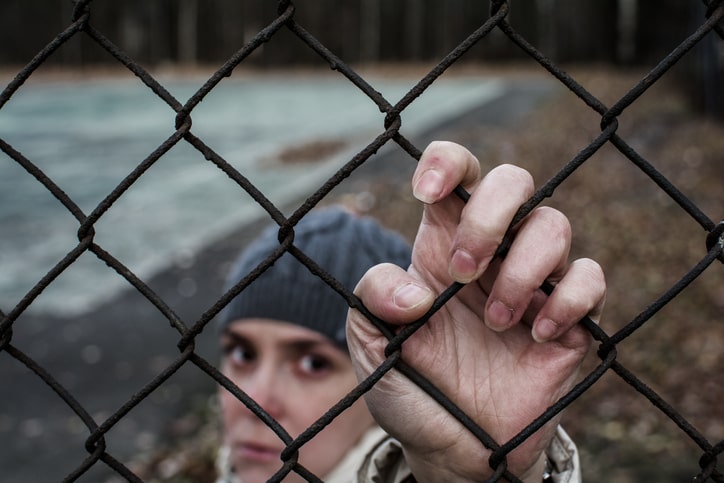At the Griffin Law Office, APC, our San Diego criminal defense attorney, we understand that parents can be overwhelmed and distressed when a juvenile is charged with a crime in California. Understanding criminal defense strategies and knowing what to expect can help parents support their children through the legal process.
Here, we discuss key points parents should know regarding juvenile crimes and criminal defense strategies.

Understanding the Juvenile Justice System in California & Our Client’s Rights
The juvenile justice system focuses more on rehabilitation than punishment. The goal is to help juveniles reintegrate into society as responsible individuals. Juvenile court proceedings are typically confidential to protect the minor’s privacy and future opportunities.
Some of the most common types of juvenile offenses include, but are not limited to:
- Status Offenses: Activities such as truancy, curfew violations, and underage drinking are only considered offenses because of the juvenile’s age.
- Delinquency Offenses: These include acts that would be considered crimes if committed by an adult, such as theft, vandalism, assault, and drug offenses.
Juveniles have rights, including:
- Right to an Attorney: Juveniles have the right to legal representation. If they cannot afford an attorney, one will be appointed.
- Right to Remain Silent: They can remain silent and avoid self-incrimination.
- Right to a Fair Hearing: They are entitled to a fair hearing in which evidence can be presented and witnesses can be cross-examined.
When our juvenile defense lawyer in San Diego represents clients, we believe parents should actively participate in their child’s defense by meeting with our lawyer, ensuring the juvenile complies with court orders, and attending court hearings. Parents also play a pivotal role in providing emotional support and maintaining open communication with the child throughout the legal process while we oversee their defense strategies.
How Does a San Diego Criminal Defense Attorney Prepare for Juvenile Crime Cases?
At Griffin Law Office, our juvenile criminal defense attorney focuses on producing the best outcomes for each of our young client’s cases. We know they have their whole lives ahead of them and want to help ensure they have the opportunity to make the most of it.
That begins by:
Assessing the Evidence
- Reviewing Police Reports: Examining the arrest details and any evidence collected by law enforcement.
- Witness Statements: Gathering statements from witnesses to support the juvenile’s case.
Challenging the Evidence
- Suppression Motions: Filing motions to suppress evidence obtained illegally or without proper procedure, such as unlawful searches and seizures.
- Questioning the Reliability: Challenging the credibility and reliability of evidence and witness testimonies.
Negotiating Alternatives
- Diversion Programs: Seeking diversion programs that provide education, counseling, and community service instead of formal charges.
- Informal Probation: Negotiating informal probation where the juvenile can avoid a formal record by meeting certain conditions.
- Counseling and Therapy: Proposing that the juvenile undergo counseling or therapy to address underlying issues contributing to their behavior.
- Educational Programs: Enrolling the juvenile in educational or vocational programs that can provide them with skills and opportunities.
Presenting Mitigating Factors
- Personal Background: Highlighting the juvenile’s positive attributes, such as good academic performance, family support, or community involvement.
- Circumstances of the Offense: Providing context that may explain the juvenile’s behavior, such as peer pressure, mental health issues, or lack of understanding.
We will negotiate with the prosecution to reduce the charges in exchange for a guilty plea to a lesser offense when necessary or agree on a sentencing plan focusing on rehabilitation rather than incarceration.
In many cases, juvenile records can be sealed or expunged, meaning they will not be accessible. This is a crucial way to protect juveniles from being judged by mistakes they made when they were younger so they can live a full life.
Parents play a crucial role in supporting their children through the juvenile justice process. Understanding the legal rights, potential defense strategies, and available alternatives can help parents advocate effectively for their child’s best interests.
Working closely with a skilled juvenile defense attorney is essential to navigating the complexities of the juvenile justice system and achieving the best possible outcome for the juvenile. We can help.
Contact Our San Diego Juvenile Criminal Defense Attorney Today
Contact our dedicated San Diego juvenile criminal defense attorney today to learn more about your legal rights and how we can help build your defense to pursue the best outcome for your case by calling 619-269-2131 today.













